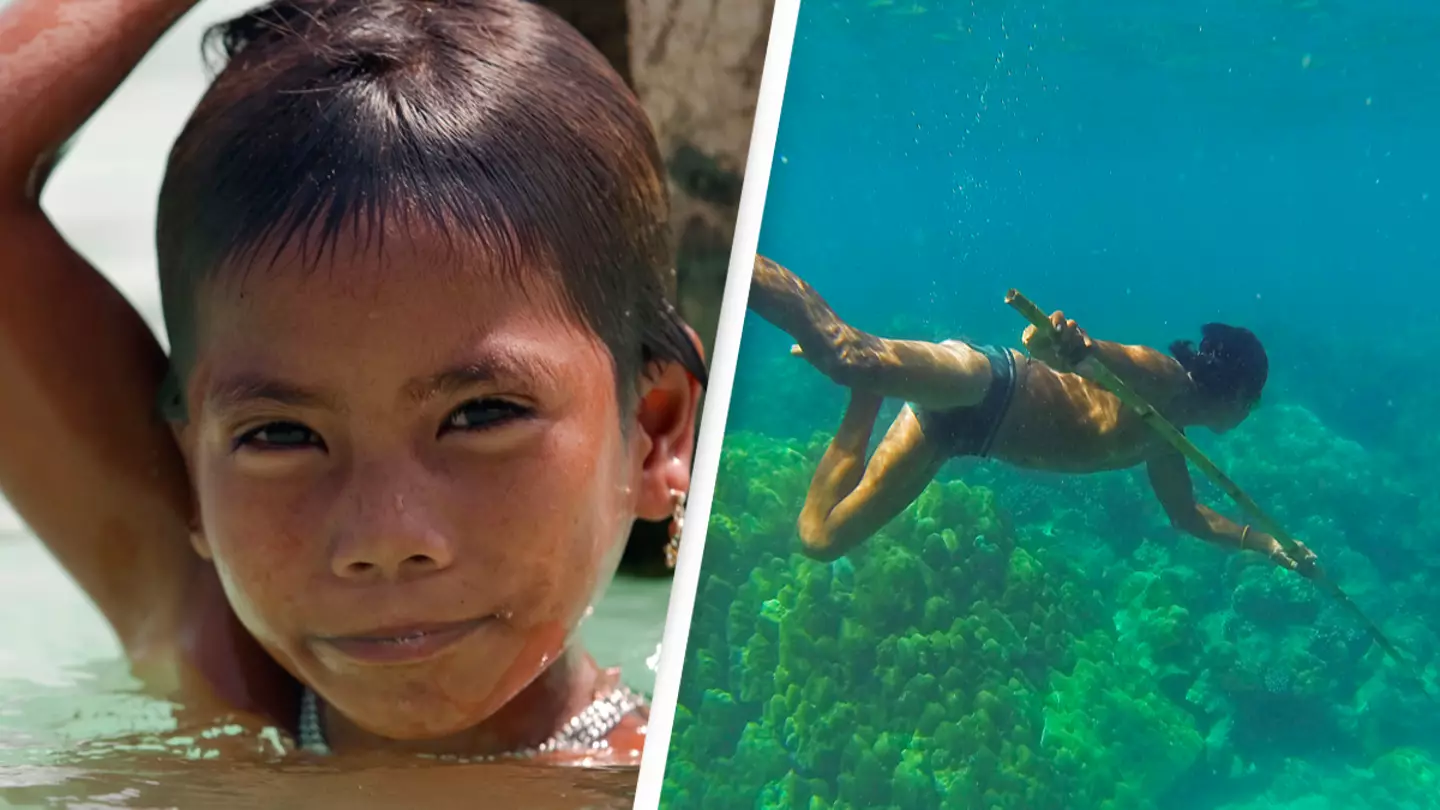
If you ever needed proof of just how adaptable to change the human body can be, then look no further than the case of the Moken tribe, a nomadic group of seafaring people in Thailand whose children have taught themselves to see underwater with perfect clarity.
Residing in the archipelagos of the Andaman sea on the west coast of Thailand, the Moken people – also referred to as ‘sea-nomads’ – sustain themselves entirely off the ocean, using simple tools such as nets and spears to forage for food.
Advert
As a result of this, the children of the tribe have taught themselves how to see perfectly underwater, training their eyes to change shape to adapt to the aquatic environment in much the same way that seals and dolphins do.
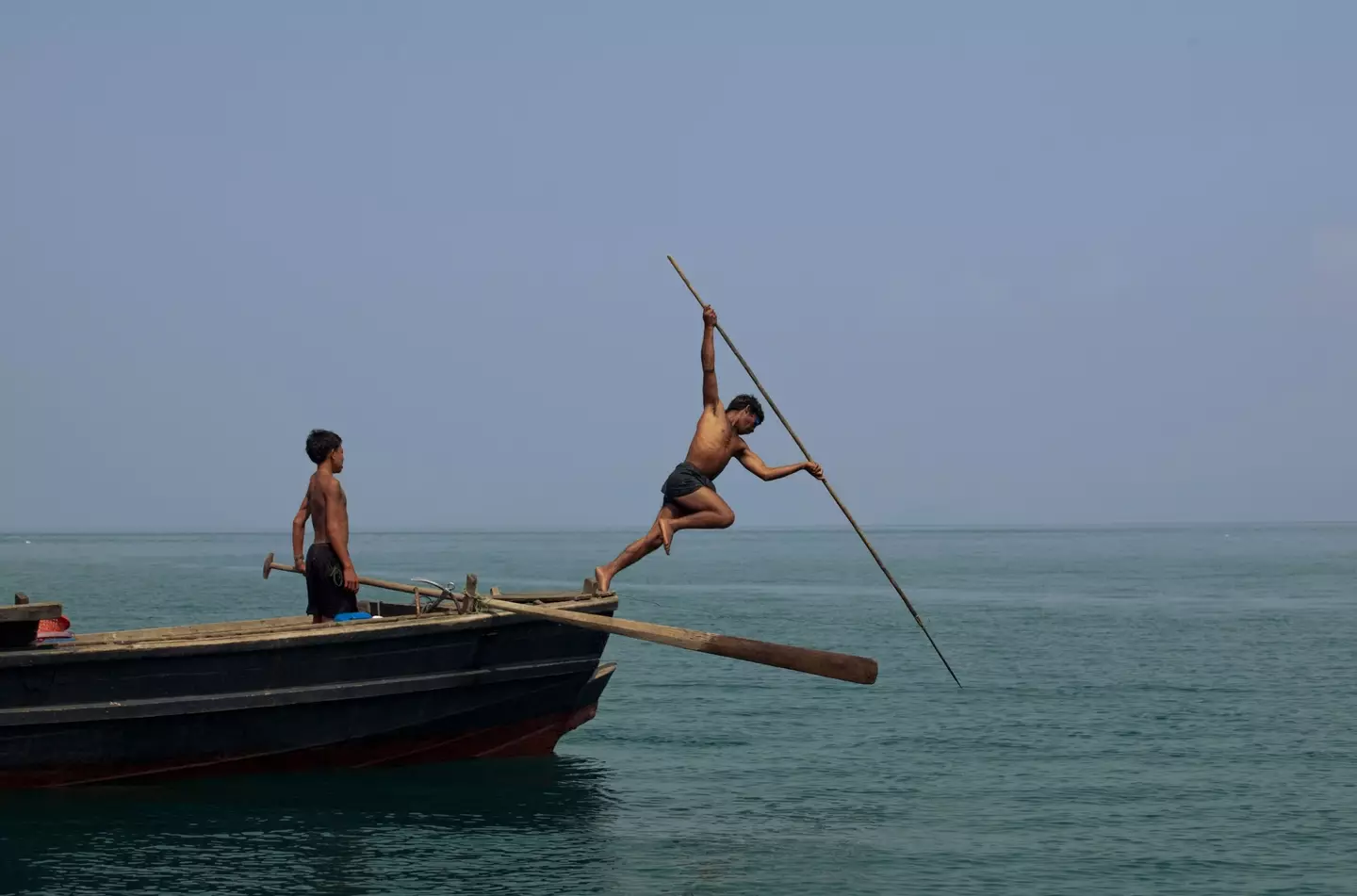
And the remarkable thing is, this trait isn’t unique to the Moken people either. In fact, experiments have shown that with enough practice any child is capable of learning this incredible skill within a matter of weeks.
The phenomenon was first noticed in 1999 by vision researcher Anna Gislen from the University of Lund in Sweden, who compiled an in-depth report on the subject for the BBC.
"Normally when you go underwater, everything's so blurry that the eye doesn’t even try to accommodate, it’s not a normal reflex," she wrote.
"But the Moken children are able to do both – they can make their pupils smaller and change their lens shape. Seals and dolphins have a similar adaptation."
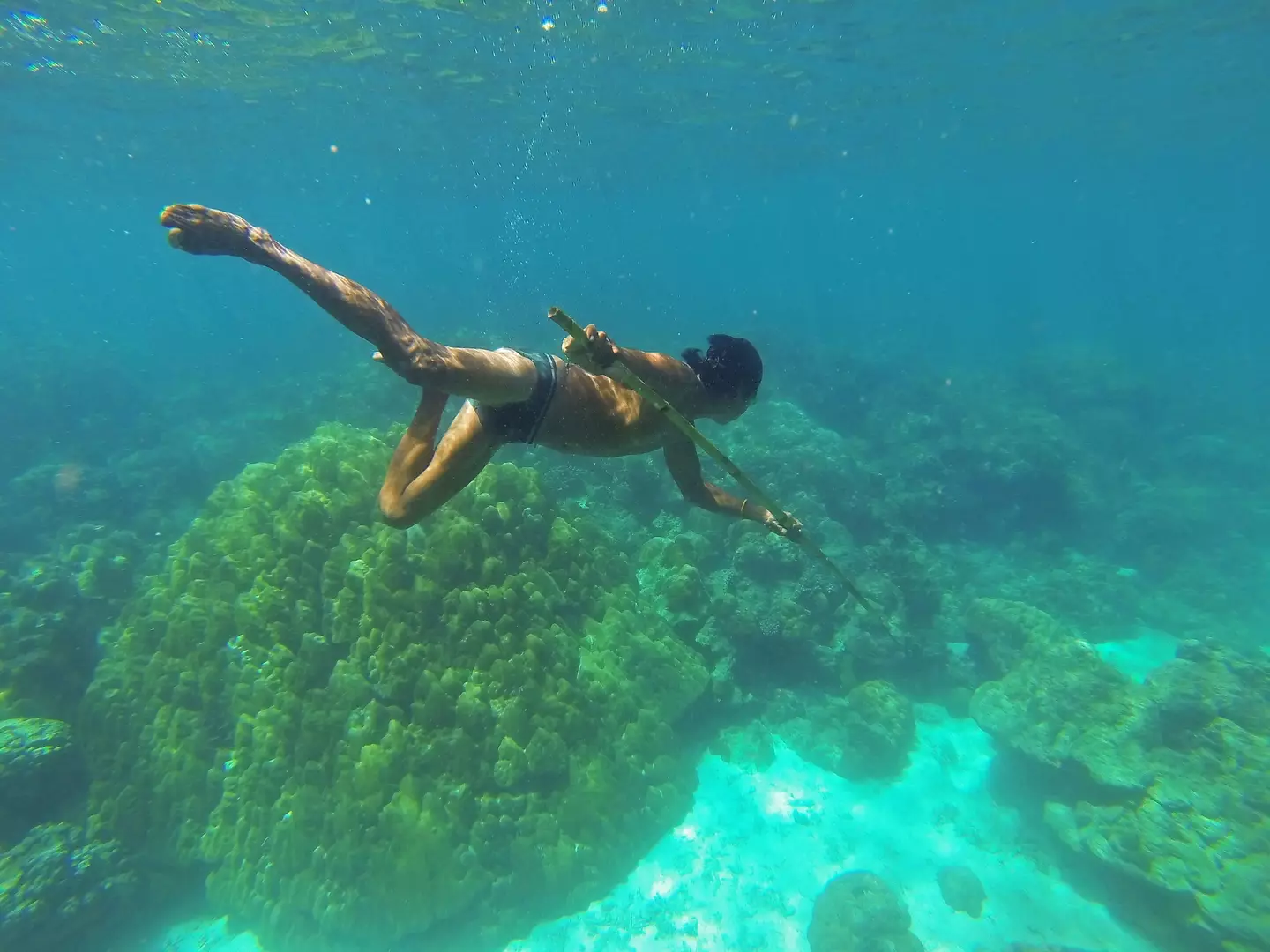
To test this theory, Gislen recruited a group of European children on holiday with their parents and used them to conduct a series of training sessions, in which they dived underwater and tried to work out the direction of lines on a card.
“If they managed to correctly identify one pattern underwater, we then used a finer grating – thinner stripes – until the child made mistakes, which meant he or she could no longer see the pattern.”
The researchers determined that the Moken children could see twice as well underwater as their European counterparts, After 11 sessions across one month, both groups were eventually able to reach the same level of undersea acuity.
“It was different for each child, but at some point their vision would just suddenly improve,” says Gislen. “I asked them whether they were doing anything different and they said, ‘No, I can just see better now’.”
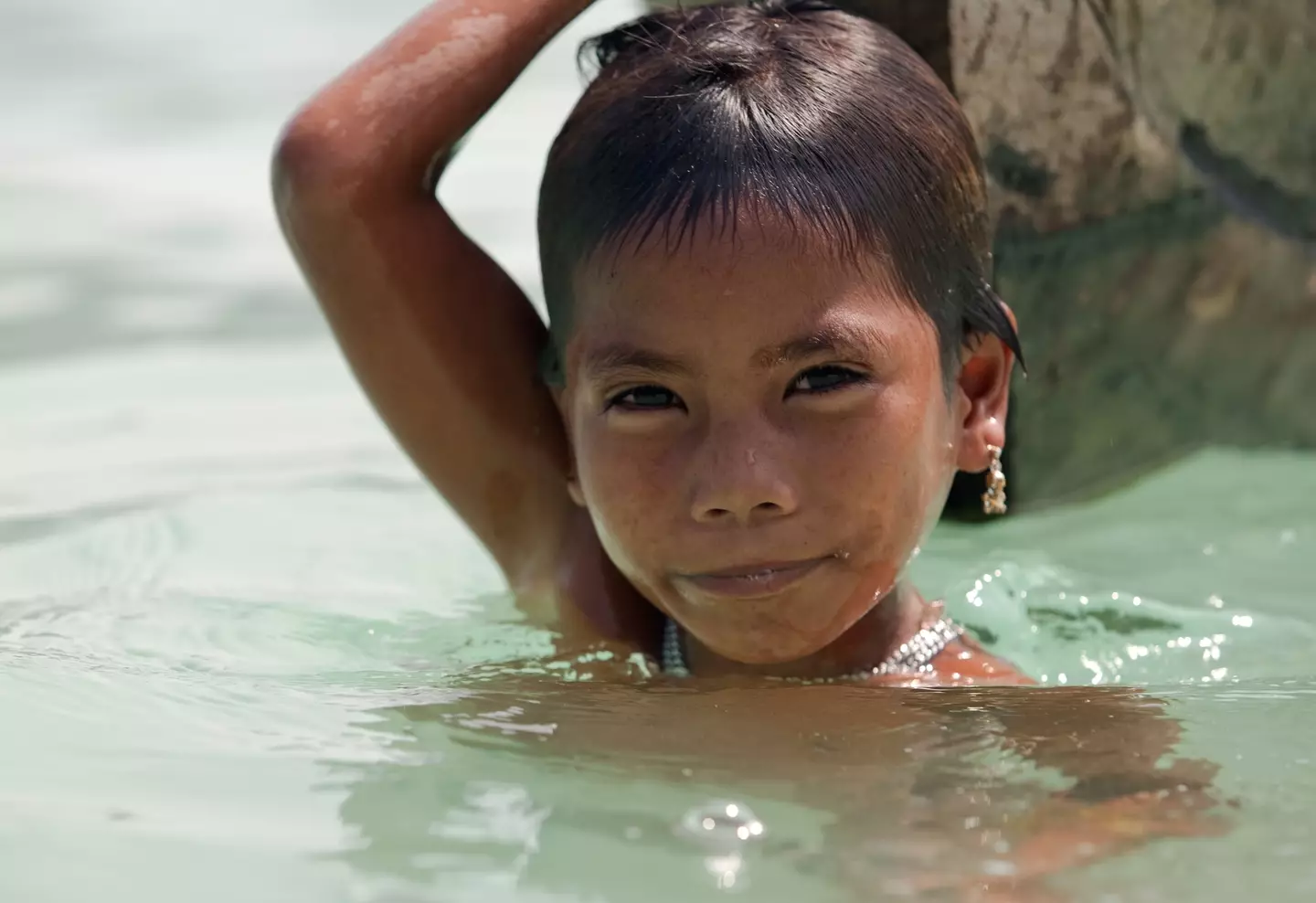
However, out of all the adults Gislen tested, none of them possessed the same ability as the children, and would instead hunt for food by spear fishing instead of diving. She suspects that the Moken lose their 'dolphin eyes' when they grow older because the lens becomes less flexible with age.
In a follow-up report, Gislen discovered that the European kids all ended up retaining the ability to constrict their pupils and achieve accommodation, even after four months of no underwater activities at all.
"When tested 8 months after the last training session in an outdoor pool in bright sunlight – comparable to light environments in South-East Asia - the children had attained the same underwater acuity as the sea-nomad children," she wrote.
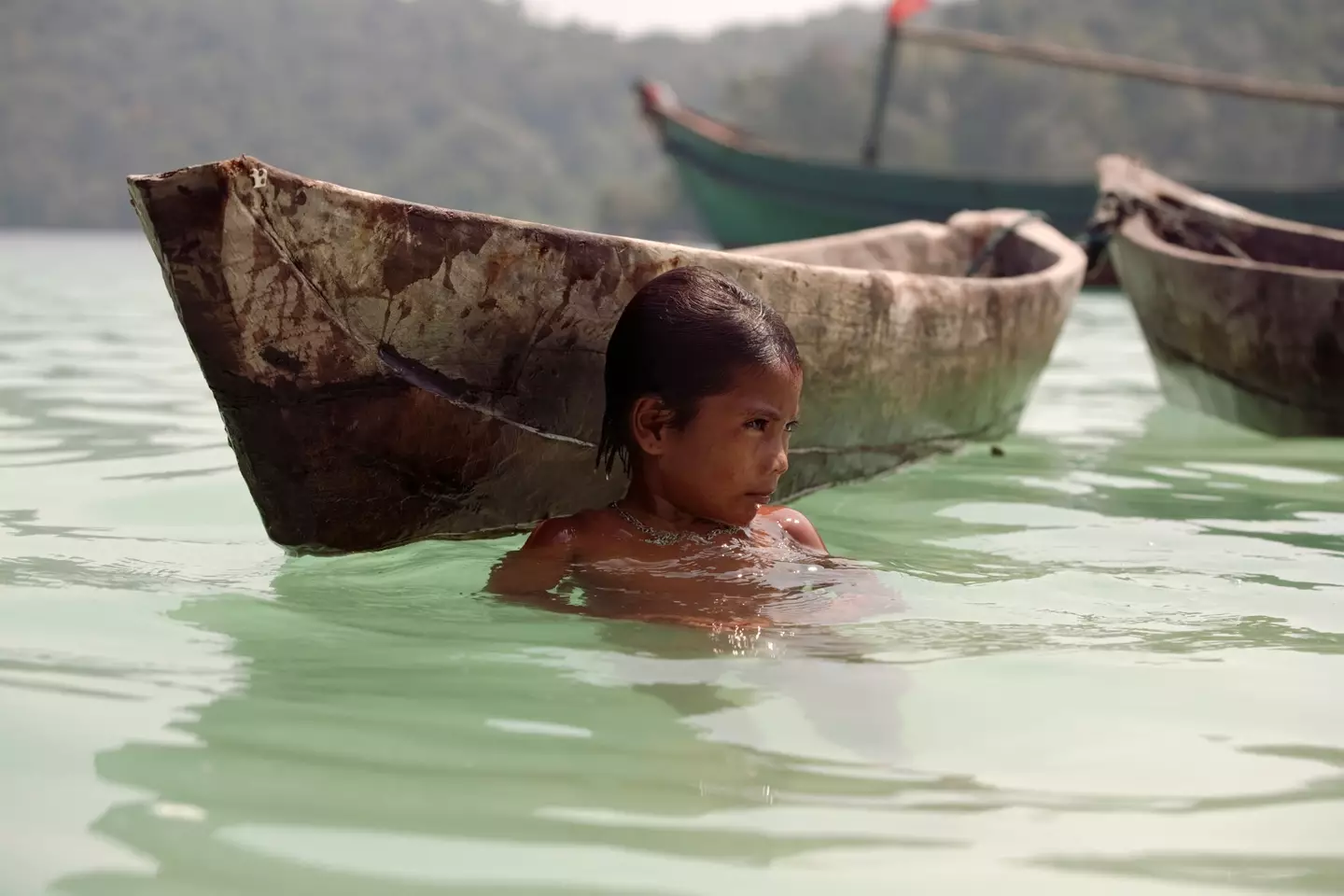
Unfortunately though, due to changes in the lifestyle of the Moken people, it looks increasingly unlikely that future generations will inherit the ‘dolphin eyes’ of their forefathers.
"They just don’t spend as much time in the sea anymore," she says, "so I doubt that any of the children that grow up these days in the tribe have this extraordinary vision."
